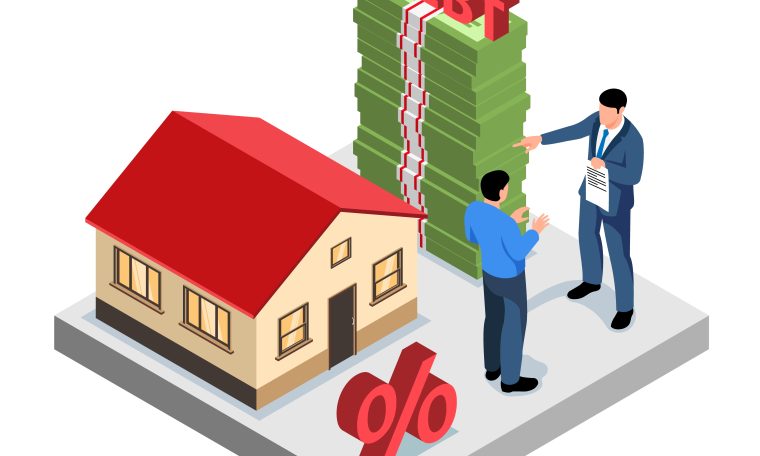
For many Canadians, their home represents their most significant financial asset. As homeowners accumulate equity in their properties, they open up opportunities to tap into this valuable resource through home equity financing options. These financing solutions can serve a variety of purposes, from consolidating debt to financing renovations or pursuing educational goals. However, understanding the intricacies of home equity financing is crucial to make informed decisions and avoid potential pitfalls.
Navigating the Landscape of Home Equity Financing
Home equity financing encompasses two primary options: home equity loans and home equity lines of credit (HELOCs). Both options utilize the equity in your home as collateral, but they differ in their structure and flexibility.
-
Home Equity Loans: Home equity loans provide a lump sum of cash, typically repaid over a fixed term with a fixed interest rate. This option offers predictability and stability, making it suitable for financing specific projects or consolidating high-interest debts.
-
Home Equity Lines of Credit (HELOCs): HELOCs function like a revolving credit line, allowing you to borrow funds up to a pre-approved limit as needed. You only pay interest on the outstanding balance, making it a flexible option for ongoing expenses or emergencies.
Eligibility Criteria and Approval Process
To qualify for home equity financing, Canadian homeowners must meet certain criteria, including:
-
Equity Threshold: The amount of equity you can access depends on the appraised value of your home and your existing mortgage balance. Lenders typically allow you to borrow up to 80% of your home’s value.
-
Creditworthiness: Your credit score plays a significant role in determining your eligibility and interest rates. A good credit score can secure lower interest rates, saving you money over the loan term.
-
Income and Debt-to-Income Ratio: Lenders assess your ability to repay the loan by evaluating your income and existing debt obligations. A healthy debt-to-income ratio, typically below 43%, indicates your financial capacity to manage the loan.
Exploring Loan Options and Making Informed Decisions
When seeking home equity financing, it’s crucial to compare loan offers from various lenders, including banks, credit unions, and online lenders. Consider factors such as:
-
Interest Rates: Compare both fixed and variable interest rates to determine the most suitable option for your circumstances.
-
Loan Terms: Understand the repayment terms, including the loan duration and any prepayment penalties.
-
Fees and Charges: Carefully review all associated fees, such as application fees, appraisal fees, and potential penalties.
Seeking Professional Guidance and Utilizing Financial Resources
Given the complexities of home equity financing, seeking professional guidance from a credit counselor or financial advisor can be invaluable. They can provide personalized advice, help you understand the terms and conditions, and develop a manageable repayment plan tailored to your financial situation.
Additionally, Canadian homeowners can access various financial resources to support their home equity financing journey. The Financial Consumer Agency of Canada (FCAC) offers comprehensive information and educational resources on home equity financing, while credit counseling services can provide guidance on debt management and financial planning.
Harnessing the Power of Home Equity Financing Responsibly
Home equity financing, when utilized responsibly, can be a powerful tool to achieve financial goals and enhance your well-being. By carefully evaluating your financial situation, comparing loan options, and seeking professional guidance, you can make informed decisions that align with your long-term financial objectives. Remember, debt consolidation or renovation projects should not lead to overextending your financial capabilities. Always prioritize financial stability and manage your debt responsibly to reap the full benefits of it.
Home equity financing has become a popular financial tool for many Canadians seeking to tap into the value of their homes. By leveraging the equity built up in their properties, homeowners can access funds for various purposes, such as consolidating debt, financing renovations, or pursuing educational goals. However, navigating the world of home equity financing requires careful consideration and informed decision-making.
Types of Home Equity Financing
There are two primary types of home equity financing available in Canada: home equity loans and home equity lines of credit (HELOCs). Each option offers distinct advantages and drawbacks, making it crucial to understand their characteristics before making a choice.
Home Equity Loans
Home equity loans provide a lump sum of cash, typically repaid over a fixed term with a fixed interest rate. This option offers predictability and stability, making it suitable for financing specific projects or consolidating high-interest debts.
-
Advantages:
- Predictable monthly payments
- Fixed interest rates offer stability
- Suitable for specific projects or debt consolidation
-
Disadvantages:
- Less flexibility compared to HELOCs
- Interest accrues on the entire loan amount
- May not be ideal for ongoing expenses
Home Equity Lines of Credit (HELOCs)
HELOCs function like a revolving credit line, allowing you to borrow funds up to a pre-approved limit as needed. You only pay interest on the outstanding balance, making it a flexible option for ongoing expenses or emergencies.
-
Advantages:
- Flexibility to borrow and repay as needed
- Interest only paid on the outstanding balance
- Suitable for ongoing expenses or emergencies
-
Disadvantages:
- Variable interest rates can fluctuate
- Potential for overborrowing due to flexibility
- Risk of interest rate increases
Eligibility Criteria and Approval Process
To qualify for home equity financing, Canadian homeowners must meet certain criteria, including:
-
Equity Threshold: The amount of equity you can access depends on the appraised value of your home and your existing mortgage balance. Lenders typically allow you to borrow up to 80% of your home’s value.
-
Creditworthiness: Your credit score plays a significant role in determining your eligibility and interest rates. A good credit score can secure lower interest rates, saving you money over the loan term.
-
Income and Debt-to-Income Ratio: Lenders assess your ability to repay the loan by evaluating your income and existing debt obligations. A healthy debt-to-income ratio, typically below 43%, indicates your financial capacity to manage the loan.
Comparing Loan Options and Making Informed Decisions
When seeking home equity financing, it’s crucial to compare loan offers from various lenders, including banks, credit unions, and online lenders. Consider factors such as:
-
Interest Rates: Compare both fixed and variable interest rates to determine the most suitable option for your circumstances.
-
Loan Terms: Understand the repayment terms, including the loan duration and any prepayment penalties.
-
Fees and Charges: Carefully review all associated fees, such as application fees, appraisal fees, and potential penalties.
Seeking Professional Guidance and Utilizing Financial Resources
Given the complexities of home equity financing, seeking professional guidance from a credit counselor or financial advisor can be invaluable. They can provide personalized advice, help you understand the terms and conditions, and develop a manageable repayment plan tailored to your financial situation.
Additionally, Canadian homeowners can access various financial resources to support their home equity financing journey. The Financial Consumer Agency of Canada (FCAC) offers comprehensive information and educational resources on it, while credit counseling services can provide guidance on debt management and financial planning.



